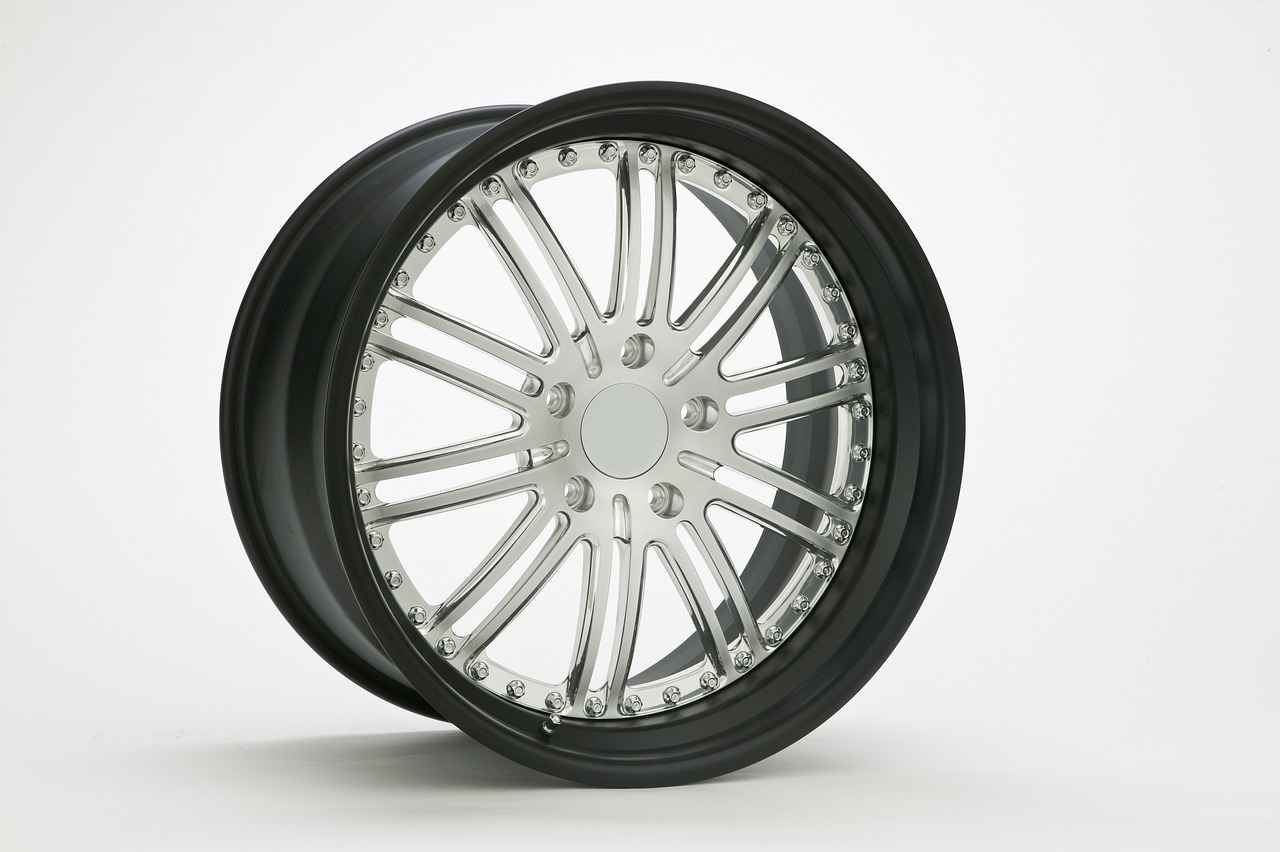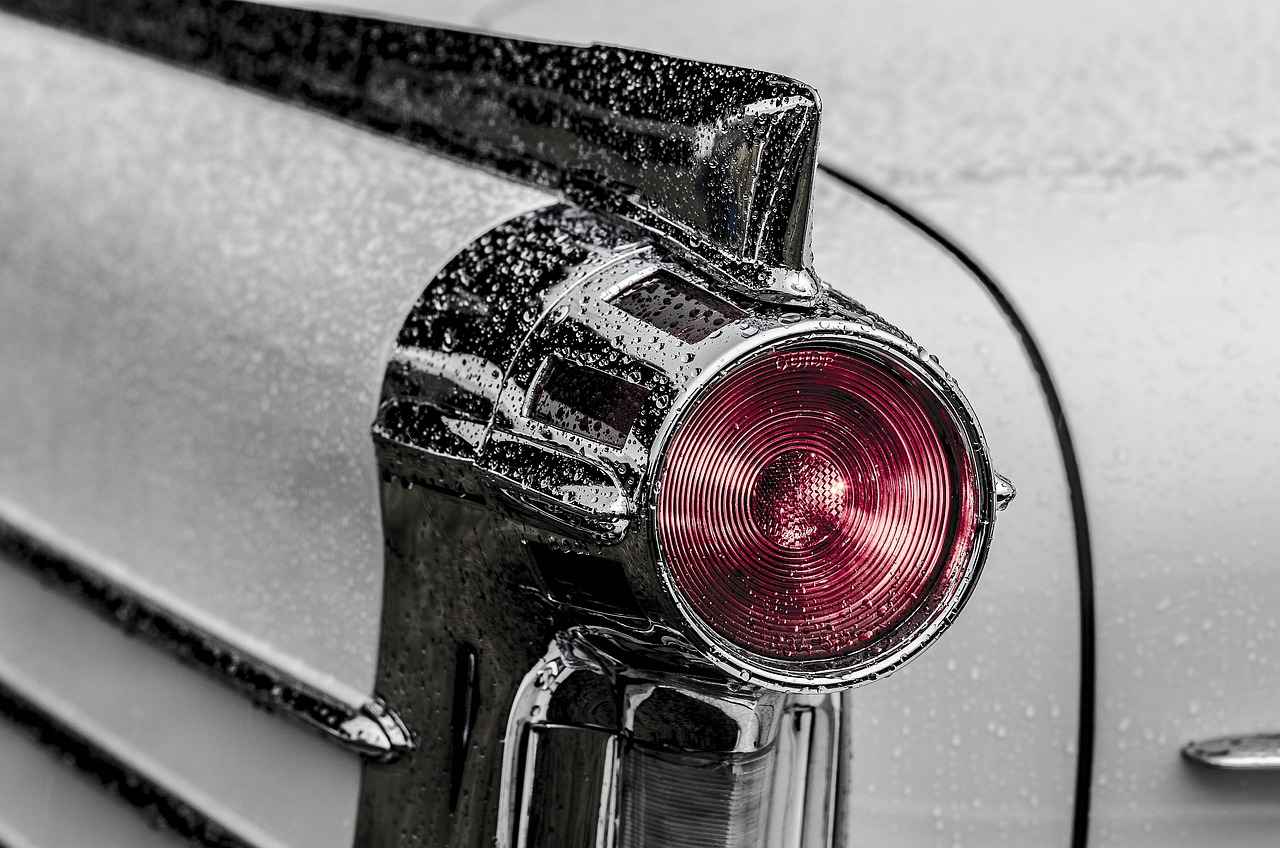This article serves as a comprehensive guide on starting a Honda Accord using a manual key. We will explore the necessary steps, valuable tips, and troubleshooting methods to ensure a seamless experience every time you need to start your vehicle.
What is the Manual Key for a Honda Accord?
The manual key is a traditional ignition key designed to start your Honda Accord. Unlike modern key fobs, which rely on electronic signals, the manual key directly engages the ignition system. Understanding its function and design is essential for effective use, especially in situations where electronic systems may fail.
Why Use a Manual Key Instead of a Key Fob?
There are several scenarios where using a manual key is advantageous:
- Battery Failures: If your key fob’s battery is dead, a manual key allows you to start your vehicle without relying on electronics.
- Electronic Malfunctions: In cases where the vehicle’s electronic systems are not functioning properly, the manual key serves as a reliable alternative.
Step-by-Step Guide to Starting Your Honda Accord
Follow these detailed steps to ensure you start your Honda Accord successfully:
- Inserting the Key into the Ignition: Insert the key smoothly into the ignition slot. Ensure it is oriented correctly to avoid damaging the ignition system.
- Turning the Key to Start the Engine: Turn the key clockwise to the “start” position. Listen for the engine’s response; it should turn over smoothly.
What to Do If the Engine Doesn’t Start?
If your Honda Accord fails to start, consider the following troubleshooting steps:
- Checking the Battery Condition: A dead battery is a common cause of starting issues. Assess the battery’s health by checking for corrosion and testing voltage.
- Inspecting the Ignition System: Examine components such as the ignition coil and spark plugs. Problems in these areas can prevent the engine from starting.
Common Mistakes When Starting with a Manual Key
Avoid these typical errors to save time and prevent damage:
- Forcing the key into the ignition.
- Turning the key too quickly, which can damage the starter.
Tips for Maintaining Your Manual Key
Proper care of your manual key can extend its lifespan:
- Keep it clean and free from debris.
- Avoid exposing it to extreme temperatures.
When to Consider Professional Assistance
Sometimes, professional help is necessary. If you encounter persistent starting issues despite troubleshooting, contacting a mechanic is advisable. They can diagnose underlying issues that may not be immediately apparent.
In summary, mastering the use of your Honda Accord’s manual key can significantly enhance your driving experience. By understanding the key’s function, following the correct starting procedures, and being aware of common pitfalls, you’ll be well-equipped to handle any situation that arises.

What is the Manual Key for a Honda Accord?
The manual key for a Honda Accord plays a crucial role in the vehicle’s operation, particularly in starting the engine. Understanding its function and design is essential for users who may find themselves relying on this traditional method of ignition. This section delves into the key’s characteristics, its importance, and how it integrates with the vehicle’s overall functionality.
First and foremost, the manual key is a physical key designed to operate the ignition system. Unlike modern key fobs, which often come with advanced features such as remote locking and unlocking, the manual key provides a straightforward approach to starting the vehicle. Its simplicity can be advantageous in situations where electronic systems fail, such as during a battery malfunction or when the key fob’s battery is depleted.
One of the key features of the manual key is its unique blade design. This design allows the key to fit snugly into the ignition cylinder, ensuring a secure connection that is necessary for starting the engine. Additionally, many Honda Accord manual keys come equipped with a transponder chip, which communicates with the vehicle’s ignition system. This feature enhances security, preventing unauthorized access and ensuring that only the correct key can start the engine.
When using a manual key, it is important to understand its role in the ignition process. Upon insertion into the ignition switch, the key must be turned to the “on” position before the engine can be started. This action activates the electrical systems within the vehicle, allowing the driver to engage the starter motor. Listening for the click of the ignition is a helpful tip, as it indicates that the key has been turned correctly.
Moreover, the manual key can serve as a backup in critical situations. For instance, if the key fob fails or if the vehicle’s electronic systems are compromised, the manual key ensures that the driver can still operate the vehicle. This reliability is why many car owners prefer to keep a manual key on hand, even in an age dominated by electronic keys.
In summary, the manual key for a Honda Accord is not just a relic of the past; it remains a vital tool for vehicle operation. Its design, functionality, and security features make it an essential component of the driving experience. Understanding how to effectively use and maintain your manual key can significantly enhance your confidence in operating your vehicle, ensuring that you are prepared for any situation that may arise.

Why Use a Manual Key Instead of a Key Fob?
When it comes to starting your vehicle, the choice between a manual key and a key fob can significantly impact your experience. While modern technology has made key fobs a popular choice due to their convenience, there are compelling reasons to consider using a manual key instead. Understanding these advantages can help clarify situations where a traditional key is not just beneficial, but necessary.
One of the primary advantages of using a manual key is its reliability. In situations where a key fob’s battery has died or the electronic components malfunction, a manual key can save the day. Imagine being stranded in a parking lot because your key fob won’t respond. With a manual key, you can simply insert it into the ignition and start your vehicle without any electronic interference.
Replacing a key fob can be expensive, often requiring a trip to the dealership and potentially costing hundreds of dollars. In contrast, a manual key is typically less costly to replace. This cost-effectiveness makes manual keys a practical choice for drivers who want to avoid hefty fees associated with electronic keys.
Manual keys operate on a straightforward mechanical system, which means there are fewer components that can fail. In contrast, key fobs rely on batteries and intricate electronic systems that can be prone to issues. By using a manual key, you eliminate the complexities that come with modern technology, making it easier to troubleshoot problems when they arise.
While key fobs come with advanced security features, they are also susceptible to hacking and signal interception. Manual keys, on the other hand, provide a more tangible form of security. Since they do not rely on wireless signals, the risk of unauthorized access is significantly reduced. This can be especially important for those who prioritize the security of their vehicles.
For many drivers, the manual key is a familiar tool that has been used for decades. This simplicity can be comforting, especially for those who may not be as tech-savvy. The straightforward action of turning a key in the ignition can feel more intuitive than using a key fob, which may require multiple steps or button presses.
- Keep a Spare: Always have a spare manual key on hand in case of emergencies.
- Regular Maintenance: Ensure your key is free of dirt and debris to avoid ignition issues.
- Know Your Vehicle: Familiarize yourself with the ignition system of your Honda Accord to troubleshoot effectively.
In summary, while key fobs offer convenience, the advantages of using a manual key cannot be overlooked. From reliability during emergencies to cost-effectiveness and enhanced security, a manual key serves as a practical alternative. Embracing the simplicity and familiarity of a manual key can ensure that you are prepared for any situation, keeping your Honda Accord running smoothly.

Step-by-Step Guide to Starting Your Honda Accord
Starting your Honda Accord with a manual key may seem straightforward, but following the right steps is essential for a smooth and successful ignition process. This guide provides a detailed, step-by-step approach to help you effectively start your vehicle using the manual key.
To ensure you start your Honda Accord successfully using the manual key, follow these detailed steps:
- Gather Your Key: Make sure you have your manual key ready. This key is typically a traditional metal key without any electronic components.
- Locate the Ignition: Find the ignition slot, which is usually located on the right side of the steering column. Ensure you have a clear view of the ignition area.
- Insert the Key: Carefully insert the key into the ignition. Make sure it is oriented correctly, with the flat side facing the steering wheel. Avoid forcing the key, as this may damage the ignition system.
- Turn the Key to the ‘On’ Position: Once the key is fully inserted, turn it clockwise to the ‘On’ position. You should see the dashboard lights illuminate, indicating that the electrical systems are active.
- Engage the Starter: Continue turning the key until you hear the engine crank. This is the ‘Start’ position. Hold the key in this position for a moment until the engine starts. If it doesn’t start immediately, release the key and try again after a few seconds.
- Listen for Engine Sounds: Pay attention to the sounds your engine makes. A smooth start indicates a healthy engine, while any unusual noises may suggest a problem.
- Release the Key: Once the engine starts, release the key. It should return to the ‘On’ position automatically, allowing your vehicle’s electrical systems to function.
If your Honda Accord does not start after several attempts, there could be underlying issues. Consider checking the battery condition or inspecting the ignition system for potential problems.
It’s important to be aware of common issues that may arise when starting your vehicle with a manual key. If the engine fails to start, ensure that:
- The Battery is Charged: A dead battery is a frequent cause of starting issues. Check the battery’s voltage and connections.
- The Key is Not Damaged: Inspect the key for any signs of wear or bending that could prevent it from functioning properly.
- The Ignition System is Functional: If the ignition system is faulty, it may prevent the engine from starting. Consider consulting a mechanic if you suspect this issue.
By following these steps and being aware of potential issues, you can effectively start your Honda Accord using a manual key. Understanding the process will not only enhance your driving experience but also ensure that you are prepared for any situation that may arise.
Inserting the Key into the Ignition
Inserting the key into the ignition of your Honda Accord may seem like a simple task, but it’s essential to do it correctly to prevent any potential damage to both the ignition system and the key itself. This section will guide you through the proper method of inserting the key, ensuring a smooth starting process.
Understanding the mechanics of your vehicle’s ignition system is crucial. Improper insertion of the key can lead to wear and tear on the ignition cylinder, potentially causing issues down the line. Additionally, forcing the key into the ignition can lead to key breakage, which can be both inconvenient and costly to resolve.
- Check the Key Orientation: Before inserting the key, ensure that it is oriented correctly. The flat side of the key should face the steering wheel. This alignment is crucial for smooth operation.
- Gently Insert the Key: Avoid using excessive force. Insert the key gently into the ignition slot until you feel it click into place. If you encounter resistance, double-check the orientation.
- Turn the Key to Start: Once the key is fully inserted, turn it to the right to start the engine. Make sure not to twist too forcefully, as this can cause damage to the ignition system.
- Inserting the Key at an Angle: Always ensure the key is straight when inserting it. Inserting it at an angle can lead to misalignment and potential damage.
- Using Excessive Force: If the key doesn’t go in smoothly, do not force it. This could break the key or damage the ignition cylinder, leading to expensive repairs.
- Ignoring Key Maintenance: Regularly check your key for signs of wear. A worn key can cause issues when inserting it into the ignition.
- Keep the Key Clean: Dirt and debris can accumulate on the key, affecting its ability to function properly. Wipe it down regularly.
- Inspect the Ignition System: Regularly check the ignition system for any signs of wear or damage. This can help you catch problems early.
- Use the Correct Key: Always use the correct key for your Honda Accord. Using a duplicate or incorrect key can cause unnecessary strain on the ignition system.
By following these guidelines, you can ensure that inserting the key into the ignition of your Honda Accord is a hassle-free experience. Proper key insertion not only protects your vehicle’s ignition system but also enhances the longevity of your key. Always prioritize careful handling to maintain the integrity of both the key and the ignition system.
Turning the Key to Start the Engine
Starting your Honda Accord using a manual key is a straightforward process, but it requires attention to detail to ensure a seamless experience. One of the critical steps in this process is turning the key correctly to engage the engine. This section will guide you through the necessary steps and provide tips on what to listen for during the process.
When you insert the manual key into the ignition, it’s important to ensure that it is fully seated. Once the key is in place, you will need to turn it to the right to start the engine. Here are the steps to follow:
- Ensure the vehicle is in neutral or park: Before starting, make sure the gear shift is in the correct position to prevent any accidental movement.
- Turn the key: With a firm grip, turn the key clockwise. You should feel a slight resistance before you reach the ignition position.
- Listen for the engine: As you turn the key, pay attention to the sounds coming from the engine. A healthy engine will produce a smooth cranking sound. If you hear a rapid clicking noise, this could indicate a weak battery.
- Hold the key in the start position: Keep the key turned until the engine starts. Once it starts, release the key; it should return to the ‘on’ position automatically.
Listening carefully during the starting process can provide valuable insights into the condition of your vehicle. Here are some sounds to note:
- Normal cranking: A steady, rhythmic sound indicates that the starter motor is functioning properly.
- Clicking sound: If you hear a series of rapid clicks, this often points to a dead battery or a poor connection.
- Grinding noise: This sound can suggest that the starter gear is not engaging correctly, which may require professional inspection.
Even seasoned drivers can make mistakes when starting their Honda Accord with a manual key. Here are a few common errors to avoid:
- Not fully inserting the key: Ensure the key is fully inserted to avoid damaging the ignition system.
- Turning the key too quickly: A gentle, steady turn is more effective than a rushed motion, which could lead to gear damage.
- Ignoring warning lights: Before starting, check the dashboard for any warning lights that may indicate an issue with the vehicle.
By following these guidelines and paying attention to the sounds your engine makes during the starting process, you can ensure a smooth and effective start to your Honda Accord. If you encounter persistent issues, it may be wise to consult a professional for further assistance.

What to Do If the Engine Doesn’t Start?
If your Honda Accord fails to start, it can be a frustrating experience. Understanding the potential causes and troubleshooting steps can help you resolve the issue effectively. This section provides a detailed overview of what to do if your engine doesn’t start, ensuring you are well-prepared for any situation.
There are several reasons why your Honda Accord may not start. Familiarizing yourself with these issues can help you identify the problem quickly:
- Dead Battery: This is one of the most common culprits. If your lights are dim or the dashboard indicators are not functioning, the battery may need a jump start or replacement.
- Faulty Starter Motor: If you hear a clicking sound when turning the key, the starter motor may be malfunctioning.
- Fuel Issues: An empty fuel tank or a clogged fuel filter can prevent the engine from starting.
- Ignition System Problems: Issues with spark plugs or ignition coils can disrupt the starting process.
Follow these troubleshooting steps to determine the cause of your Honda Accord’s starting problems:
- Check the Battery: Start by inspecting the battery terminals for corrosion. If they appear clean but the battery is dead, try jump-starting the vehicle. If it starts, consider replacing the battery soon.
- Listen for the Starter Motor: When you turn the key, listen for a clicking sound. If you hear it, but the engine doesn’t turn over, the starter motor may need replacement.
- Inspect Fuel Levels: Ensure there is sufficient fuel in the tank. If you recently filled up, consider checking for a clogged fuel filter.
- Examine the Ignition System: Inspect the spark plugs and ignition coils for wear and tear. Replacing faulty components can often resolve starting issues.
If you’ve gone through these troubleshooting steps and your Honda Accord still won’t start, it may be time to consult a professional mechanic. They can perform a thorough diagnostic to identify underlying issues that may not be immediately apparent.
Taking proactive steps can help prevent future starting problems:
- Regular Maintenance: Schedule regular check-ups for your vehicle to ensure all systems are functioning properly.
- Battery Care: Clean battery terminals and check battery health regularly to avoid unexpected failures.
- Fuel System Maintenance: Use fuel additives periodically to clean the fuel system and prevent clogs.
By understanding the potential reasons for starting issues and following the troubleshooting steps outlined above, you can effectively address the problem and get your Honda Accord back on the road.
Checking the Battery Condition
When experiencing starting issues with your Honda Accord, one of the most common culprits is a dead battery. Understanding how to assess your battery’s health is crucial in determining whether it requires a jump start or a complete replacement. This guide will provide you with detailed insights into checking your battery condition effectively.
The health of your vehicle’s battery is vital for ensuring reliable performance. A battery that is weak or failing can lead to starting difficulties, leaving you stranded. Regularly checking your battery can prevent unexpected failures and extend its lifespan.
- Slow Engine Crank: If you notice that your engine cranks slowly when you turn the key, it may indicate a weak battery.
- Dim Lights: Dimming headlights or interior lights can signal that your battery is losing power.
- Corrosion: Check for white, ashy deposits around the battery terminals, which can hinder performance.
- Check Engine Light: If this light appears on your dashboard, it may be a sign of battery issues.
To accurately determine your battery’s condition, follow these steps:
- Visual Inspection: Begin with a thorough visual check. Look for any signs of physical damage, leaks, or corrosion on the terminals.
- Test Voltage: Use a multimeter to measure the voltage. A fully charged battery should read between 12.4 to 12.7 volts. If the reading is below 12.4 volts, the battery may need charging or replacement.
- Load Test: Perform a load test, which simulates the battery’s performance under normal conditions. This test can help determine if the battery can hold a charge effectively.
If your battery shows signs of weakness but is not completely dead, a jump start may be a quick solution. However, if the battery fails to hold a charge after a jump or shows significantly low voltage, it might be time for a replacement. Always consult with a professional if you are unsure about the condition of your battery.
To ensure your battery remains in good condition, consider the following tips:
- Regularly clean the battery terminals to prevent corrosion.
- Check the battery’s charge level periodically, especially before long trips.
- Avoid leaving electronic devices plugged in when the vehicle is off.
- Consider investing in a battery maintainer if your vehicle is not used frequently.
By understanding how to check your battery’s condition and recognizing the signs of a failing battery, you can take proactive steps to maintain your Honda Accord’s performance. Regular maintenance and awareness can save you from inconvenient situations and ensure a smooth driving experience.
Inspecting the Ignition System
When your Honda Accord refuses to start, it can be a frustrating experience. One of the primary systems to inspect is the ignition system, which plays a crucial role in starting your vehicle. Understanding its components and functionality can significantly aid in diagnosing the issue. In this section, we will explore the key elements of the ignition system and provide a step-by-step guide on what to check if your vehicle won’t start.
The ignition system consists of several vital components that work together to ignite the fuel-air mixture in the engine. These include:
- Ignition Coil: Converts the battery’s low voltage into the high voltage needed to create a spark.
- Distributor: Distributes the high-voltage spark to the appropriate cylinder.
- Spark Plugs: Ignite the fuel-air mixture in the engine’s cylinders.
- Ignition Switch: Engages the ignition system when the key is turned.
- Wiring and Connectors: Ensure proper electrical flow between components.
If your Honda Accord won’t start, follow these troubleshooting steps to diagnose potential ignition system issues:
- Check the Ignition Switch: Ensure that the ignition switch is functioning correctly. If the dashboard lights do not illuminate when you turn the key, the switch may be faulty.
- Inspect the Battery: A weak or dead battery can prevent the ignition system from operating. Use a multimeter to check the battery voltage; it should read around 12.6 volts when fully charged.
- Examine the Spark Plugs: Remove the spark plugs and inspect them for wear or carbon buildup. If they appear damaged, replace them.
- Test the Ignition Coil: Use a multimeter to test the resistance of the ignition coil. If it falls outside the manufacturer’s specifications, it may need replacement.
- Check the Wiring: Inspect the wiring and connectors for signs of wear, corrosion, or damage. Ensure all connections are secure and free from debris.
If you discover a faulty component during your inspection, it’s essential to address the issue promptly. Here are some options:
- Replace the Spark Plugs: If the spark plugs are worn, replacing them is a straightforward task that can often resolve starting issues.
- Change the Ignition Coil: If the ignition coil is defective, replacing it can restore proper function to the ignition system.
- Consult a Professional: If you are unsure about diagnosing or replacing components, it may be wise to seek assistance from a qualified mechanic.
In conclusion, understanding the ignition system and its components is vital for troubleshooting starting issues in your Honda Accord. By following the steps outlined above, you can effectively diagnose problems and take appropriate action to get your vehicle back on the road.

Common Mistakes When Starting with a Manual Key
Starting your Honda Accord with a manual key may seem straightforward, but many drivers encounter challenges that can lead to frustration and potential damage to their vehicle. Understanding the common mistakes made during this process is crucial for a smooth experience. This section will delve into typical errors and provide insights on how to avoid them.
Many drivers underestimate the importance of proper technique when using a manual key. The following are some common mistakes that can hinder the starting process:
- Incorrect Key Insertion: One of the most frequent errors is failing to insert the key fully into the ignition. This can prevent the ignition system from engaging properly.
- Rushing the Starting Process: Some drivers hastily turn the key without allowing it to settle in the ignition. Taking a moment to ensure the key is in the correct position can make a significant difference.
- Turning the Key Too Quickly: Turning the key too fast can lead to misalignment within the ignition system. A steady and deliberate motion is essential for a successful start.
- Neglecting to Check for Accessories: Leaving electrical accessories on can drain the battery. Always ensure that lights, radio, and other electronics are turned off before attempting to start the engine.
- Overlooking the Clutch Pedal: In manual transmission vehicles, failing to fully depress the clutch pedal can prevent the engine from starting. This is a critical step that should not be overlooked.
To enhance your starting experience with a manual key, consider the following tips:
- Take Your Time: Ensure that you insert the key correctly and allow it to settle in the ignition before turning.
- Listen for Sounds: Pay attention to the sounds your vehicle makes when starting. A smooth start indicates that everything is functioning correctly.
- Perform Regular Checks: Regularly inspect your battery and ignition system to catch potential issues early.
- Practice Patience: If the engine doesn’t start immediately, avoid the temptation to turn the key repeatedly. Instead, wait a moment before trying again.
If you find yourself struggling to start your Honda Accord after avoiding common mistakes, it may be time to troubleshoot further. Here are some steps to consider:
- Check the Battery: A dead battery is often the culprit behind starting issues. Ensure your battery is charged and connections are secure.
- Inspect the Key: Look for signs of wear or damage on the manual key. A damaged key can hinder the ignition process.
- Consult the Owner’s Manual: Your vehicle’s manual may offer specific guidance on starting procedures and troubleshooting tips.
By being aware of these common mistakes and implementing the suggested strategies, you can significantly improve your experience when starting your Honda Accord with a manual key. A little knowledge and preparation can go a long way in ensuring your vehicle starts smoothly every time.

Tips for Maintaining Your Manual Key
Maintaining your manual key is essential for ensuring its longevity and reliable performance. A well-cared-for key not only functions better but also prevents unexpected issues when you need to start your Honda Accord. Below are some practical maintenance tips that can help you extend the lifespan of your manual key.
- Regular Cleaning: Keep your manual key clean by wiping it with a soft cloth regularly. Avoid using harsh chemicals that can damage the key’s surface. A gentle soap and water solution can effectively remove dirt and grime.
- Avoid Excessive Force: When inserting or turning your key in the ignition, do so gently. Using excessive force can lead to bending or breaking the key, as well as damaging the ignition system.
- Check for Wear and Tear: Regularly inspect your manual key for any signs of wear, such as cracks or chips. If you notice any damage, consider replacing the key to avoid getting stuck in a situation where it won’t turn.
- Store Properly: When not in use, store your manual key in a safe place. Avoid leaving it in areas where it can be exposed to moisture or extreme temperatures, as this can affect its functionality.
- Use a Keychain: Attaching your key to a keychain can help prevent it from getting lost and protect it from scratches. Choose a lightweight keychain to avoid unnecessary weight that could damage the key.
In addition to these tips, consider the following additional maintenance practices:
- Lubricate the Key: Occasionally, you can apply a small amount of graphite lubricant to the key. This helps ensure smooth operation in the ignition and prevents sticking.
- Keep Away from Electronics: Avoid placing your manual key near electronic devices that may cause interference. Magnetic fields can sometimes affect the key’s function, especially if it has electronic components.
- Consult Your Owner’s Manual: Always refer to your Honda Accord’s owner’s manual for specific instructions and recommendations regarding key maintenance. This ensures you’re following the manufacturer’s guidelines.
By following these maintenance tips, you can ensure that your manual key remains in optimal condition, ready to start your Honda Accord whenever you need it. Regular care not only enhances the performance of your key but also contributes to a smoother driving experience.

When to Consider Professional Assistance
When it comes to troubleshooting starting issues with your Honda Accord, there are times when professional assistance becomes essential. While many drivers may feel confident in their ability to handle minor problems, certain situations require the expertise of a qualified mechanic. Understanding when to seek help can save you time, money, and frustration.
If you find that your Honda Accord is consistently having trouble starting, it might be time to consult a professional. Repeated issues can indicate underlying problems that are not easily fixable through basic troubleshooting. A mechanic can perform a thorough diagnostic to identify issues that may not be immediately apparent, such as electrical faults or fuel system failures.
Strange sounds when you turn the key can be a sign of serious issues. If you hear clicking, grinding, or other abnormal noises, it’s advisable to seek professional help. These sounds could indicate problems with the starter motor, battery, or even the ignition system. Ignoring these signs can lead to further damage and costly repairs.
Modern vehicles, including the Honda Accord, come equipped with numerous warning lights on the dashboard. If you notice any warning lights illuminated while trying to start your car, it’s a clear signal that something is wrong. A mechanic can read the diagnostic trouble codes and provide insight into the specific issues affecting your vehicle.
While a dead battery is often the culprit for starting problems, there are times when a jump start isn’t enough. If your battery frequently dies or shows signs of corrosion, it may need replacement. A professional can test the battery’s condition and determine whether it’s time for a new one or if there are other electrical issues at play.
If your Honda Accord cranks but fails to start, the issue may lie within the fuel system. Problems such as a clogged fuel filter, failing fuel pump, or empty gas tank can prevent the engine from receiving the necessary fuel. An experienced mechanic can diagnose these issues accurately and recommend the appropriate repairs.
Starting issues can also stem from electrical system malfunctions. If you suspect that the ignition switch, wiring, or fuses are faulty, it’s best to leave these repairs to a professional. Attempting to fix complex electrical problems without the right knowledge can lead to further complications.
The ignition system is crucial for starting your vehicle. If you’ve checked the battery and fuel system but still encounter problems, it may be time to consult a mechanic. Issues with spark plugs, ignition coils, or other components require specialized tools and knowledge to diagnose and repair effectively.
Recognizing when to seek professional assistance is vital for maintaining your Honda Accord’s performance and reliability. By being aware of the signs that indicate a need for expert help, you can ensure your vehicle remains in optimal condition and avoid unnecessary repairs.

Conclusion: Mastering Your Honda Accord’s Manual Key
In summary, understanding your vehicle’s starting mechanism is crucial for ensuring a smoother driving experience with your Honda Accord. The manual key, though often overlooked in today’s digital age, plays a significant role in starting your vehicle, especially in situations where electronic systems may fail. This section elaborates on the importance of mastering the manual key’s use, providing insights that can enhance your overall driving experience.
First and foremost, it is essential to recognize that the manual key is not just a simple tool; it is a vital component of your vehicle’s starting system. Familiarizing yourself with how to properly use the manual key can prevent unnecessary stress and inconvenience, particularly when faced with unexpected electronic malfunctions. By understanding the key’s design and function, you can ensure that you are prepared for any situation that may arise.
Moreover, using a manual key can be beneficial in various scenarios. For instance, if your key fob’s battery dies or if the electronic ignition system fails, having the knowledge and skills to operate the manual key can save you from being stranded. This knowledge not only empowers you as a driver but also enhances your confidence in handling your vehicle.
Additionally, the process of starting your Honda Accord with a manual key involves specific steps that should be followed for optimal results. From inserting the key correctly to turning it in the ignition, each action plays a crucial role in successfully starting the engine. Understanding these steps can help avoid common mistakes that many drivers make, such as forcing the key into the ignition or turning it too quickly.
Furthermore, if you encounter issues where the engine does not start, knowing how to troubleshoot the problem can be invaluable. Regular checks on the battery condition and understanding the ignition system can help identify potential problems before they escalate. This proactive approach can save time and money, allowing you to maintain your vehicle in peak condition.
In conclusion, mastering your Honda Accord’s manual key is not just about starting your vehicle; it is about gaining a deeper understanding of your car’s mechanics and ensuring a reliable driving experience. By investing time in learning about the manual key, you equip yourself with the knowledge needed to handle various situations effectively. This understanding ultimately leads to a more enjoyable and stress-free driving experience.
Frequently Asked Questions
- What should I do if my manual key won’t turn in the ignition?
If your manual key won’t turn, it might be due to debris in the ignition or the steering wheel being locked. Try gently wiggling the steering wheel while turning the key. If it still doesn’t work, inspect the key for damage or wear.
- Can I start my Honda Accord with a dead key fob?
Yes, you can still start your Honda Accord using the manual key even if the key fob battery is dead. The manual key is designed to bypass electronic issues, allowing you to start the engine directly.
- How can I tell if my battery is dead?
If your car doesn’t start and you hear a clicking noise when turning the key, it’s likely a dead battery. You can also check the dashboard lights; if they’re dim or not lighting up at all, it’s a sign that your battery may need a jump start or replacement.
- What are common mistakes when starting with a manual key?
Common mistakes include forcing the key into the ignition, not fully inserting it, or turning it too quickly. Always ensure the key is inserted correctly and turned smoothly to avoid damaging the ignition system.
- When should I seek professional help for starting issues?
If you’ve tried troubleshooting and your Honda Accord still won’t start, it’s time to consult a mechanic. Persistent issues may indicate deeper problems with the ignition system or electrical components that require expert attention.



